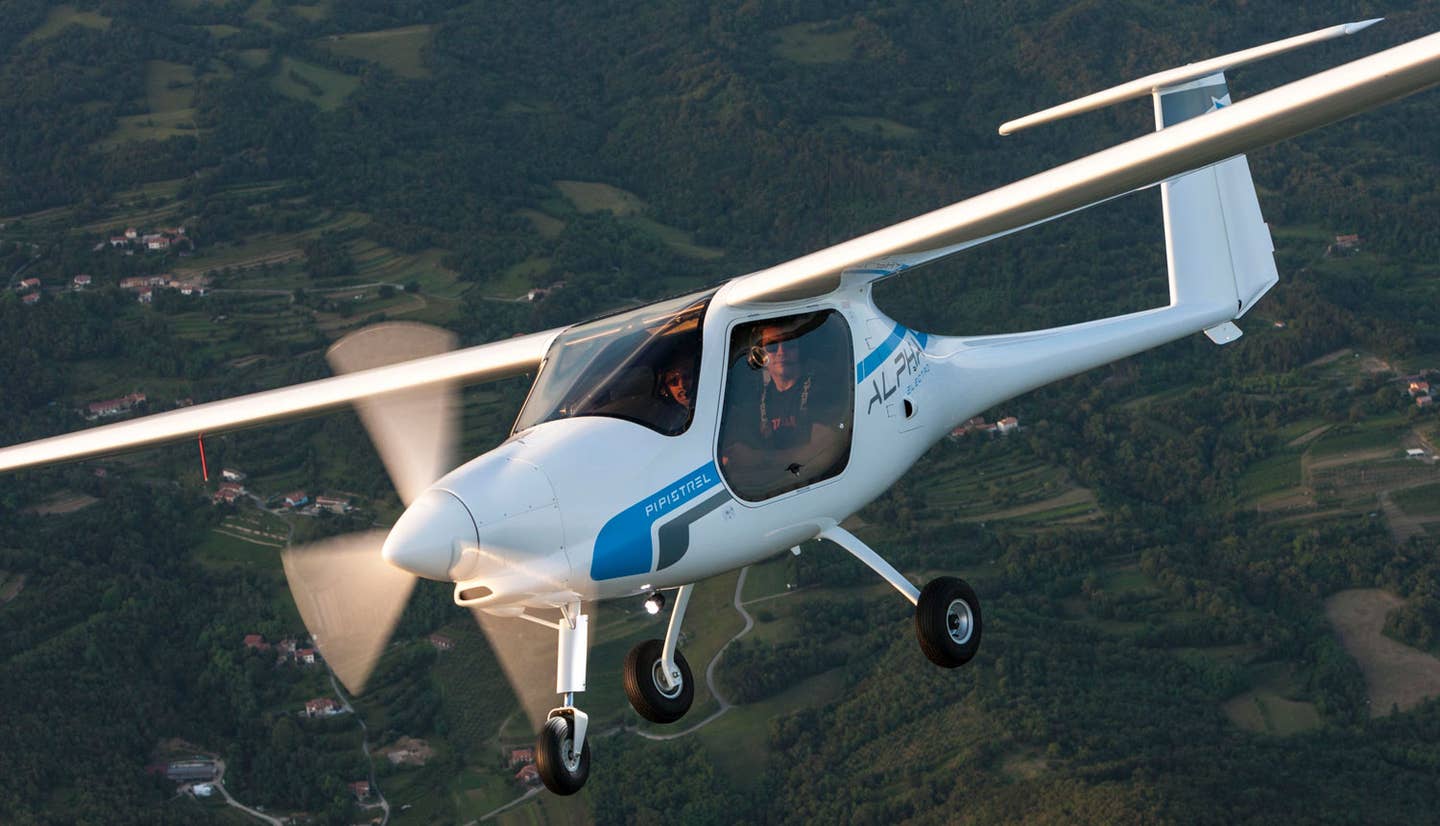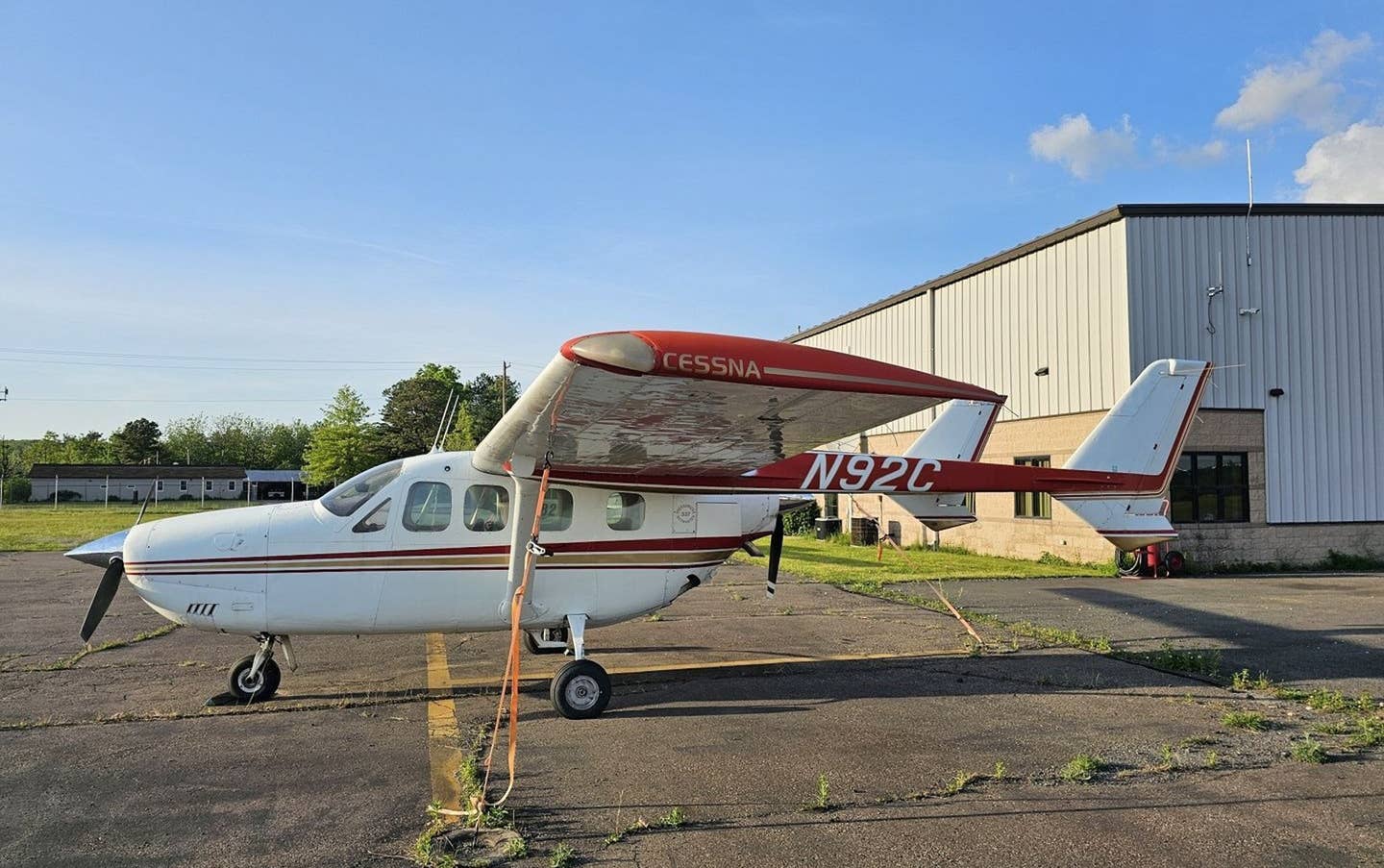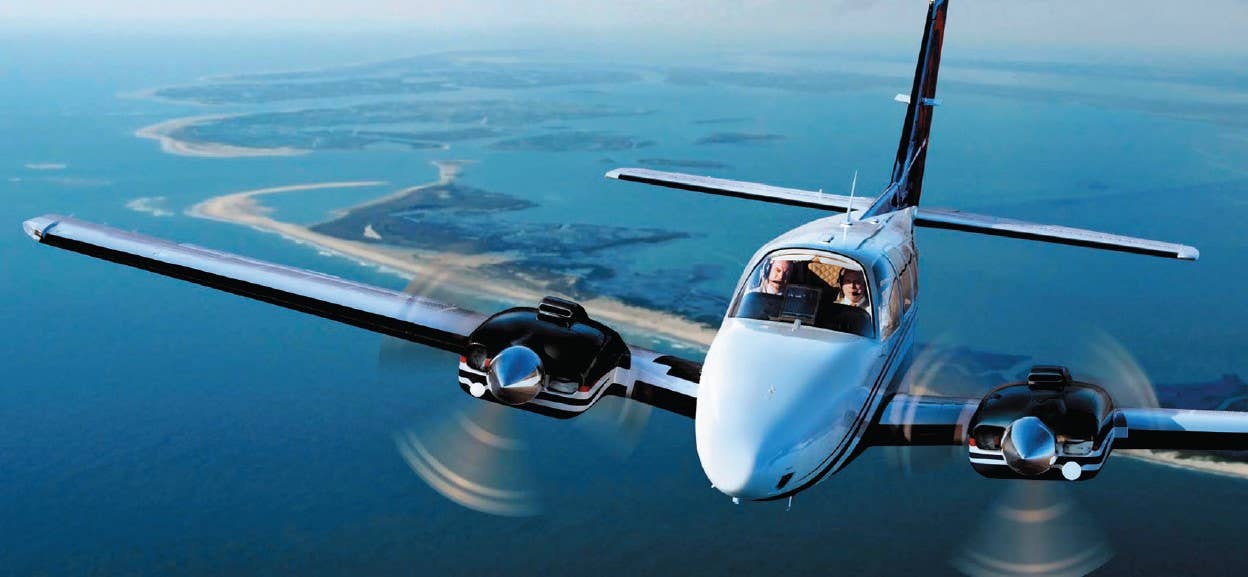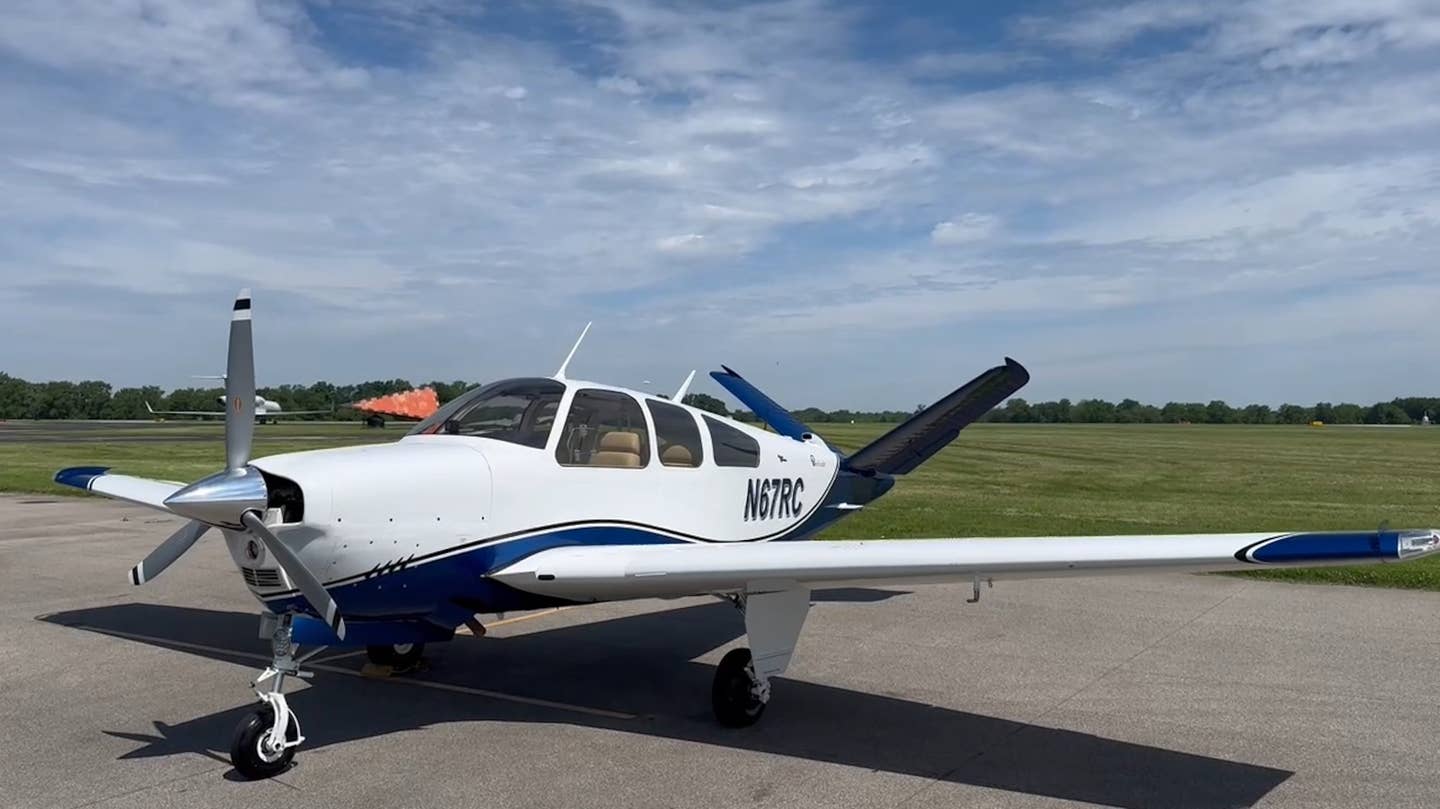
The Pipistrel ALPHA Electro will form the basis for an electric aircraft network, as envisaged by TAM founder Robin Petgrave. Courtesy Pipistrel
Tomorrow's Aeronautical Museum doesn't just pay lip service to the future with its name—the Compton, California-based flight academy embraced new technology two years ago as it accepted its first two Pipistrel ALPHA Electro Light Sport airplanes. The Compton-Woodley Airport at which Tomorrow's Aeronautical Museum (TAM) is based recently announced the installation of charging stations that will allow for anticipated operations of the electric trainers on the field—and beyond.
The Pipistrel SkyCharge docking station allows for two aircraft to charge simultaneously, filling the battery in 45 minutes, to support continuous flight training operations. The full charge allows for 60 minutes of flight time with a 20-minute reserve. The Pipistrel ALPHA Electro is a two-seat, 85-knot cruise airplane purposefully designed for training. For example, the airplane has been optimized for traffic pattern work, with the ability to recoup 13% of the energy spent on each approach, increasing endurance.
To enable cross-country flying, and expand the airplane’s reach, TAM intends to install charging stations at other airports in the Los Angeles Basin. They’ve identified San Gabriel Valley Airport, in El Monte, as a likely next recipient of the station. The plan fits in with TAM’s vision to provide aviation education to the Compton area—particularly to disadvantaged youth—and support STEAM initiatives at local schools. The idea is create a cleaner, more sustainable environment for flight training, as more electric aircraft are added to their fleet—and others—and use of the zero-emission, lithium-battery-powered trainer grows.
Pipistrel aircraft are already in use at the Fresno Chandler Executive Airport—a rural area. TAM awaits FAA certification of the aircraft for use over congested areas shortly, and, when this occurs, will immediately put the aircraft into operation at Compton.
“We’re setting up an electric ‘grid,’” says Robin Petgrave, founder of TAM. “Once we get the FAA approval, we’ll offer lessons from $90 per hour per person within the grid,” greatly reducing the cost of flight training while at the same time making it a more environmentally friendly exercise.

Subscribe to Our Newsletter
Get the latest FLYING stories delivered directly to your inbox






